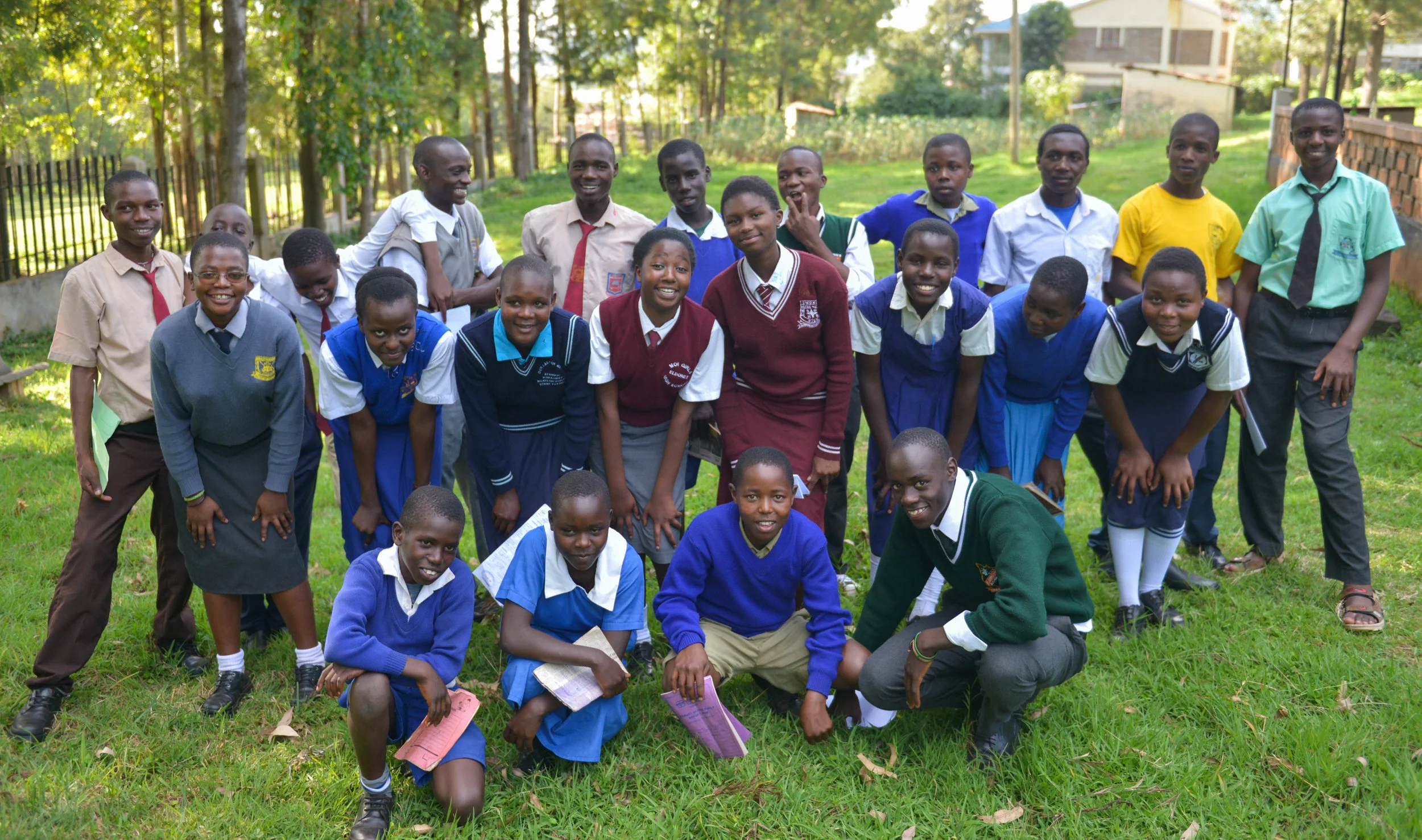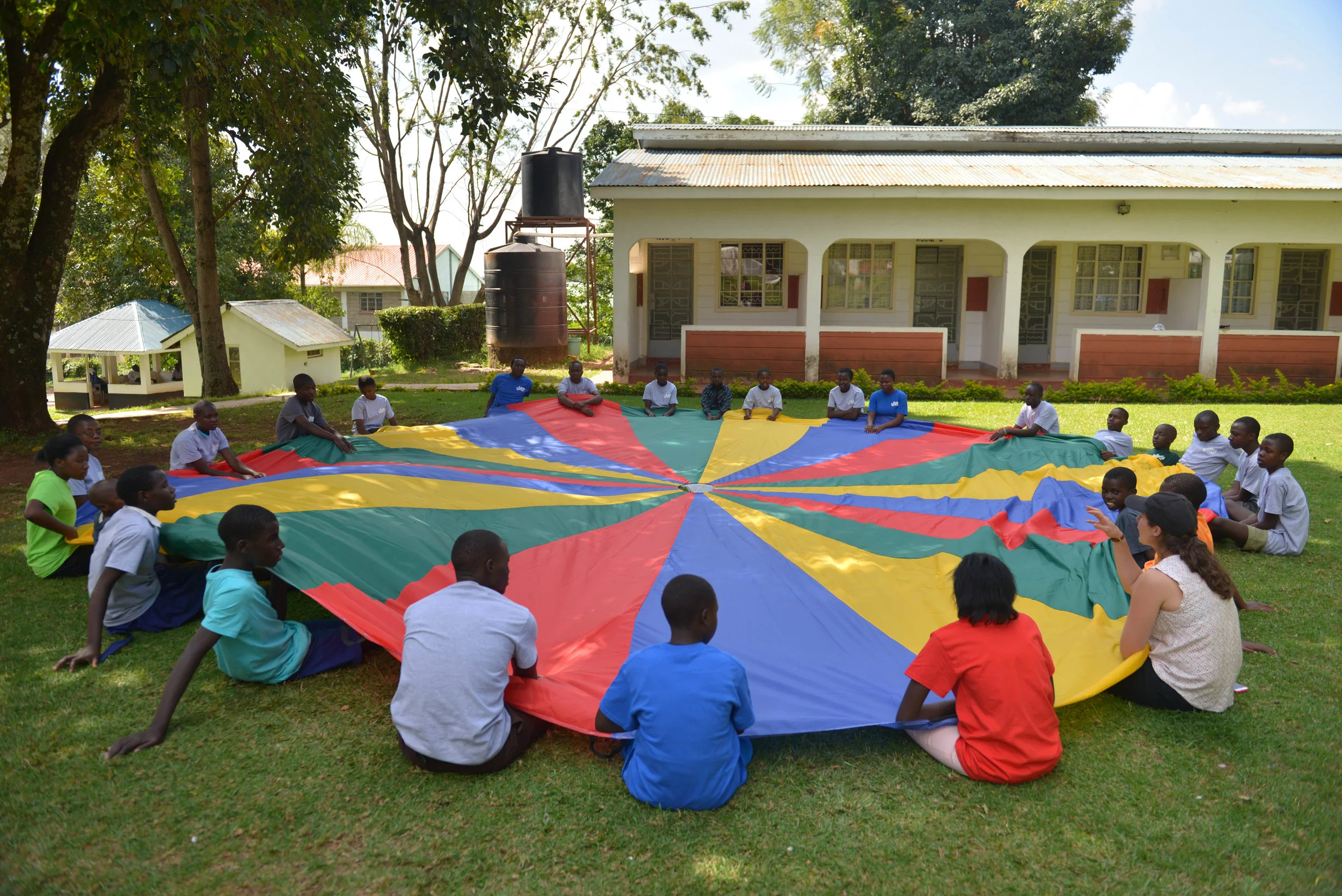Scholarship. Mentorship. A sense of community for orphans. These are a few of the ways your Ajiri Tea and Coffee purchases are strengthening lives in western Kenya.
Sara & Kate Holby of Ajiri Tea
Ajiri means “to employ” in Swahili. Co-owner Sara recognized that creating a company with a “full cycle of sustainable aid” meant going beyond providing handout benefits or selling great-tasting tea; it meant cultivating jobs, fostering economic independence, and advancing educational opportunities.
Sara reflected, “My mom studied abroad in Kenya in the 70s, and when I was 19, I participated in the same program. I was able to spend time with different families and volunteer with a nonprofit. After I graduated college in 2008, I received a grant to return to Kenya for a year to volunteer for an NGO that distributed food and medicine to community members suffering from HIV/AIDS. It was during the recession, and the organization began to shut down around me as the grants and donations that had funded it were drying up. The effect was that people who’d come to depend on the benefits were without food and medicine, practically overnight.”
Having witnessed the detrimental cycle of aid, dependence, and low self-esteem, Sara, her sister Kate, and their mother Ann wanted to start a company that would take on these issues and initiate positive change. Since tea is a major industry in western Kenya, women tend to reinvest 90% of their earnings back into their families, and education is a sustainable investment, they decided to marry all three in Ajiri Tea Company. In 2013, Ajiri expanded to include Kenyan AA coffee.
Today, Sara takes charge of sales and management of the Kenyan side of the business, Kate handles marketing, and Ann plays an integral, behind-the-scenes role.
Employing Women
Ajiri Tea currently employs 60 women from 5 women’s groups to hand-make their keepsake labels as well as the twines that go inside. Each Ajiri label is a unique work of art, made with inspiration from daily life using dried bark from banana trees. The artworks are placed on paper handmade from water hyacinth—an invasive species in Lake Victoria—mixed with recycled office paper. Employees Duncan and Regina pick up the paper each month from its maker, Mike, and distribute it to each of the women’s groups. Throughout the month, the women work from home on the designs, which are totally at their discretion. They are paid at the month’s end.
“It has been really inspiring to see the savings programs these women have created in the last couple of years,” said Sara. “One of the women’s groups pooled their income to buy 100 chickens, which they raised and sold. They’ve also created loan programs called ‘table banking.’ The basic idea is for members of the group to put money on the table, loan it to someone around the table, and then divide the interest on the loan when it is repaid. Loan rates are very high in Kenya, so this offers women another option. They might use their loans to replace their thatched roofs with more reliable materials, pay for their children’s educations, or purchase animals. It is so exciting to see this happening and so obvious that they want to improve their lives.”
Educating Orphans
100% of Ajiri’s net profits are returned to Kenya to pay school fees for orphans. These students have been orphaned for various reasons, sometimes due to their parents’ deaths from HIV/AIDS.
All of the students Ajiri sponsored in school in 2016, taken at the annual student field day.
Sara shares information about the Kenyan school system which helps explain why this support is so crucial. “If you are familiar with the setup of Newman’s Own, we are similar. We are a for-profit, then we donate 100% of the net profits to our Foundation. This year, we are supporting 30 students in primary and high school. The primary schoolers go to a local day school. School itself is free, but we supply them with books, uniforms, school supplies, and other necessities. In Kenya, all high schoolers go to boarding schools; admissions to particular schools are based on an 8th grade exam. Talk about pressure! They have to bring everything to boarding school with them—their own mattresses, blankets, buckets for washing clothes and for drinking water, toilet paper, sanitary napkins . . . the list is long. We help provide everything on their list as well as school fees, uniforms, transportation, and other school-related costs.
A photo of the students playing with a parachute at field day
More than just paying for everything, we mentor the students and try to create a community for them. Our employees Duncan and Regina go to their parent-teacher meetings, work to sort out any issues, discuss their report cards with them, and other things that would usually have involved their parents.
We also want to inspire them to consider the possibilities for their lives and careers. For example, in high school, they all do a trip to Nairobi to see what life is like there—the hustle and bustle of the big city is very different from the small villages where they grew up—and what sorts of career options there are. They have, for example, visited the General Electric office, and spoken with a student at the University of Nairobi, a woman who runs a non-profit focused on reproductive health and rights, a tech startup that helps farmers know the market price of goods, the Daily Nation newspaper printing press, and Royal Media Services to see how TV and radio programs are produced.”
The Tea
Tea Harvest
While you’ll first be wowed by the exterior, which has won a distinguished sofi award for packaging, the taste will keep you returning for more. Sip, and you’ll understand why Ajiri has won first place at the North American Tea Championships and the Buyer’s Choice Award for Best Tea.
Sara says, “It is so important to the sustainability of our business to have a taste that backs up our mission, so this work can continue indefinitely. Our tea is all handpicked, so the highest quality is ensured and it never has a bitter taste. We pick only the top leaves and the bud, so you can steep as long as you like and your tea will get stronger, but never more bitter.” The high altitude, abundant rainfall, and fertile volcanic soils make Kisii, Kenya, an ideal tea-growing region. “All of our black tea blends are sourced from a cooperative of farmers in western Kenya. The tea is grown on small-scale shambas, or farms. On average, each shamba is only a quarter to two acres of land.”
The Coffee
Since 2013, Ajiri has proudly offered Kenyan AA Coffee. AA designates the size and grade of the bean—generally, the bigger the bean, the greater the flavor and aroma enhancing essential oils. AA is coffee’s highest grade. Like its tea, Ajiri’s coffee is grown on predominantly small-scale farms. The main coffee-growing area spans from the slopes of snow-capped Mt. Kenya toward Nairobi (to the south).
Kenyan coffee is known for its bright and fruity flavor with complimentary gentle notes of wine and black currant. The diverse and complex flavors reflect the diverse and vibrant regions in which it is grown.
With Love
We hope this story of love inspires you this Valentine’s Day as much as it does us! The Savory Pantry is one of a few stores in the Saratoga area and the only store in Central Arkansas to proudly carry Ajiri Tea and Coffee, and we hope you’ll join us in supporting this incredible mission, whose taste is as rich as its story.





